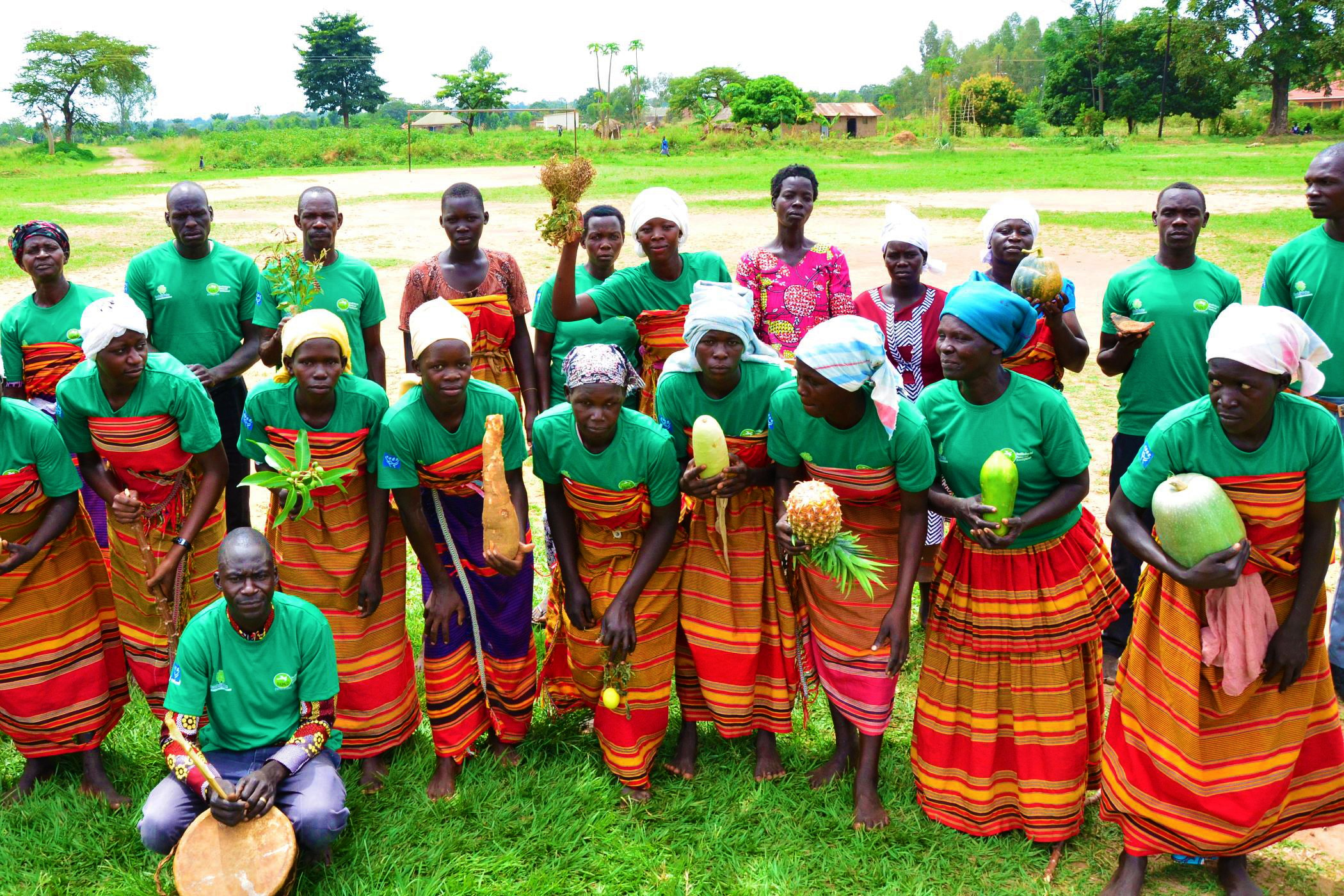Prime
Seed fair restores hope of indigenous seeds

A group of farmers in Amolator District display some of the indegenous fruits during the taining on seeds preservation recently. Photo/George Katongole.
What you need to know:
- For Phiona Amucu, a sim-sim farmer in Adwongolana Village, Awelo Sub-county, the training in indigenous seed preservation proved to be a game-changer.
- She shared how this newfound knowledge protected her from the pitfalls of counterfeit seed sellers, a challenge she had grappled with before.
It has become increasingly common for farmers to sell off their entire harvest, leaving little to no seeds for the next planting season.
According to the national seed policy document of Uganda, up to 85 percent of the seed that Ugandan farmers plant is through the informal seed sector.
The consumption of indigenous foods is constrained by underdeveloped production and marketing systems, inadequate awareness of benefits, limited processing, and cultural acceptance.
Risk
This trend has placed indigenous crop varieties at risk and rendered farmers to be dependent on seed shops for their agricultural future. In Amolatar District, the consequences of this shift are palpable.
“Traders from as far as Kenya come and buy all the season’s produce and leave us without any seeds. Our indigenous maize varieties, especially those that used to be multi-coloured, are no more. We are now at the mercy of farm input suppliers for seeds,” lamented Joseph Odong, a farmer in Adyanglit Village, Muntu Sub-county, Amolatar District.
Preserving indigenous crops
However, hope emerged during a recent indigenous seed and food fair competition held at Amolatar Primary School. This event, organised by Facilitation for Peace and Development (FAPAD) and funded by Belgian NGO Broederlijk Delen, brought together farmers from various sub-counties in Amolatar.
Through the fair, these farmers were taught to preserve indigenous and traditional seeds to enhance food security, expand market access, and adapt to climate change.
Game-changer
For Phiona Amucu, a sim-sim farmer in Adwongolana village, Awelo Sub-county, the training in indigenous seed preservation proved to be a game-changer. She shared how this newfound knowledge protected her from the pitfalls of counterfeit seed sellers, a challenge she had grappled with before.
“I had not attained these skills during the time I have been farming. With the knowledge I have, it will be easier for me to manage my garden properly. The knowledge I have received will help me reduce the cost of buying seeds some of whichare fake,” Amucu says.
Jennifer Alum, a single mother of five in Naibyaita village, Muntu Sub-county, exemplified the transformative power of indigenous seeds. Facing debts and unpaid school fees, her family’s future seemed bleak.
The Initiative for Community Empowerment and Support (ICES), a five-year project, started in 2021 is tackling agricultural challenges faced by farming communities in the Lango Sub-region.
Their approach includes training farmers in seed preservation, among other vital initiatives. Collaborating with Broederlijk Delen, they empower farmers through the transfer of knowledge and expertise. The ICES project work with agricultural training institutions to build the capacity of community-based farmer innovators and community farmers.

Farmers from Akongolit village in Amolator display their indeginous seeds during the seed fair.
Role of indigenous seeds
The importance of conserving and harnessing the genetic resources of native crops and plants for nutrition and genetic diversity preservation remains key.
Indigenous foods and seeds have long played a crucial role in food security, nutrition, and the incomes of smallholder farmers. Their inherent advantages include heightened resilience to adverse environmental conditions and remarkable medicinal and nutritional properties.
Broederlijk Delen is committed to aiding farmers in the conservation of indigenous foods and seeds.
The organisation actively took part in an indigenous seed and food fair, both to gather valuable data and to highlight the significance of preserving, preparing, enhancing value, and consuming local seeds and foods in Uganda.
Bram Jacobs, the country representative of Broederlijk Delen, emphasised the project’s ambitious goal of reaching 2,500 households, directly and indirectly, benefiting around 180,000 people across the Lango and Rwenzori regions.
Jacobs pinpointed poor soil health and the haphazard use of synthetic inputs as significant challenges farmers face.




